FINNISH AIR FORCE (Lelv32) Summer 1941 at Immola
ROMANIAN AIR FORCE No.53 Squadron June 1941 at Mamaia / Lieutenant Horia Agarici
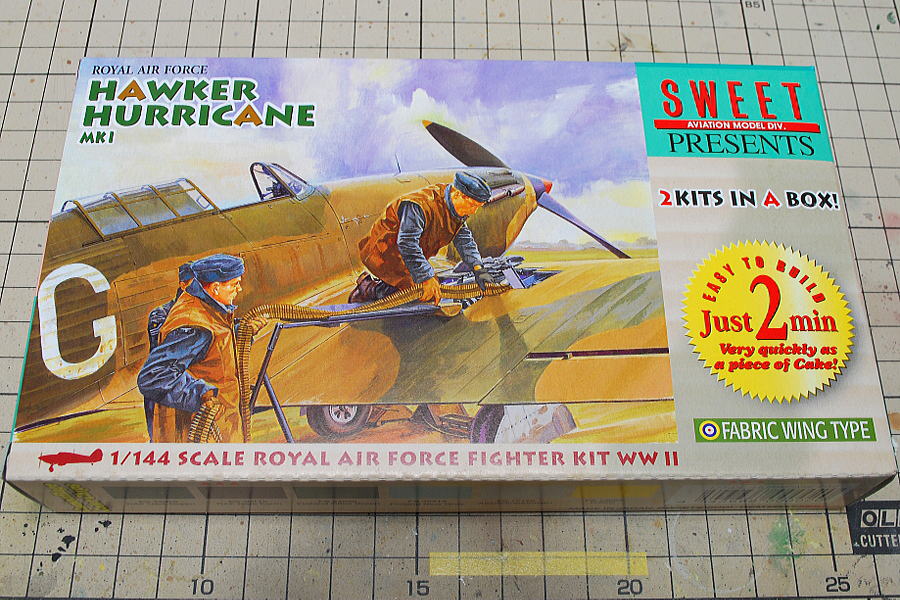 I do my best to be finished well. I decided to make Hawker Hurricane of SWEET 1/144. I liked the Zero fighter, which I completed before.
I do my best to be finished well. I decided to make Hawker Hurricane of SWEET 1/144. I liked the Zero fighter, which I completed before.
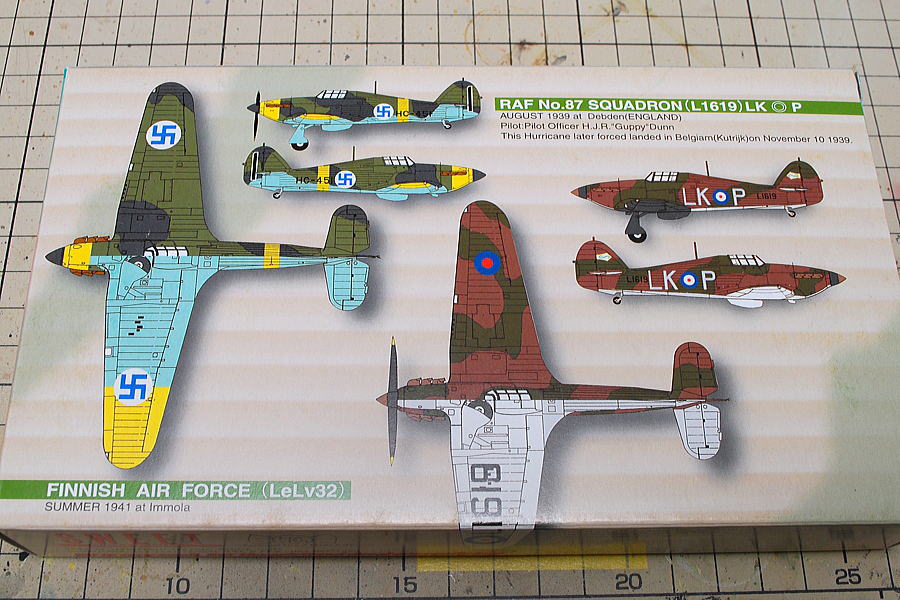 It seems to be able to build various countries’ Hurricanes. I planned to build the Finnish Air Force and the Romanian Air Force planes.
It seems to be able to build various countries’ Hurricanes. I planned to build the Finnish Air Force and the Romanian Air Force planes.
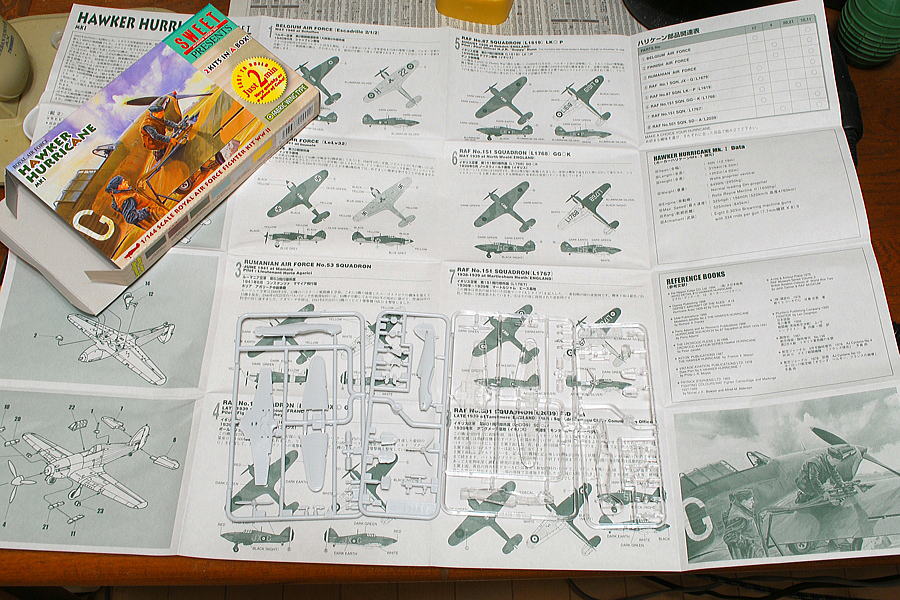 This instruction is very large compared to the kit box. The airplane of the British air force and the Belgium air force can be chosen besides the above.
This instruction is very large compared to the kit box. The airplane of the British air force and the Belgium air force can be chosen besides the above.
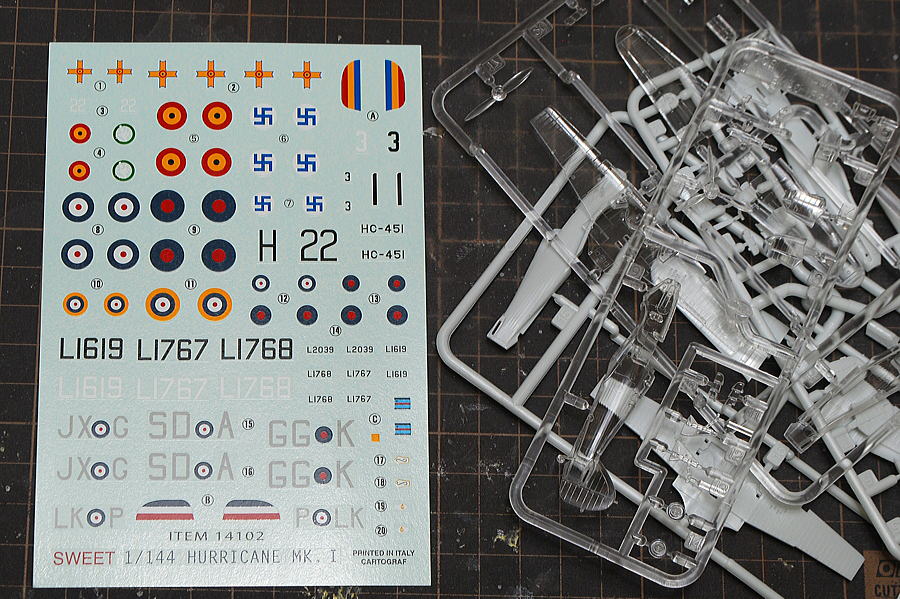 I look forward to pasting these beautiful Cartograf decals.
I look forward to pasting these beautiful Cartograf decals.
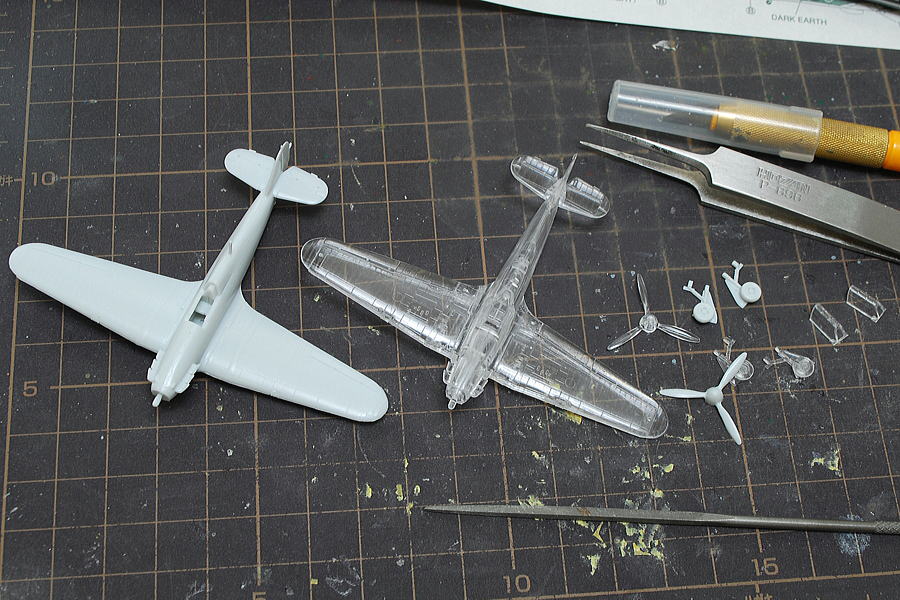 It was surprising for one body entirely to be clear parts. When it is the body of British airplanes, the form of the exhaust pipes is different. And the propeller is two wings type.
It was surprising for one body entirely to be clear parts. When it is the body of British airplanes, the form of the exhaust pipes is different. And the propeller is two wings type.
(23-November-2015)
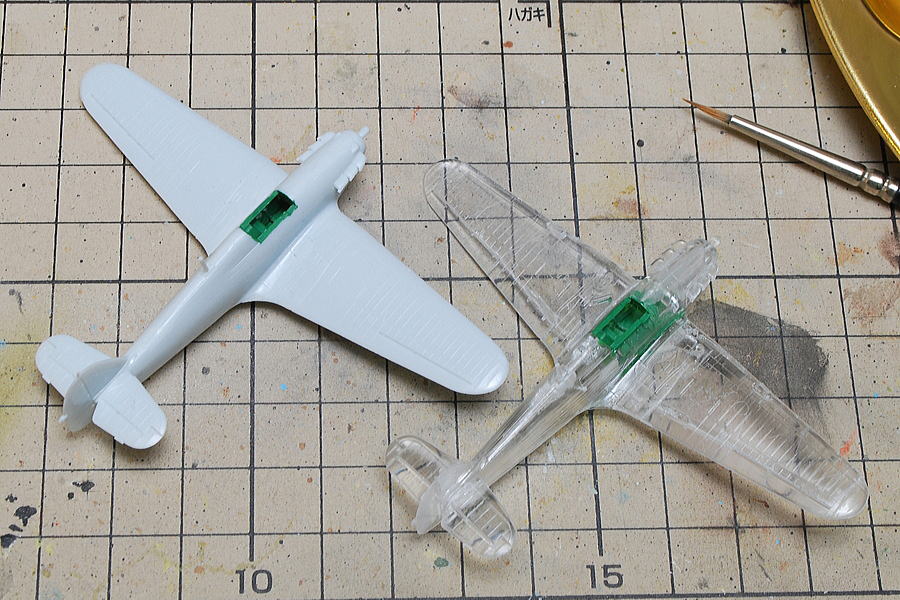 I just painted the aircraft interior color. The body of the clear parts looks very dirty, but I suppose it is probably all right.
I just painted the aircraft interior color. The body of the clear parts looks very dirty, but I suppose it is probably all right.
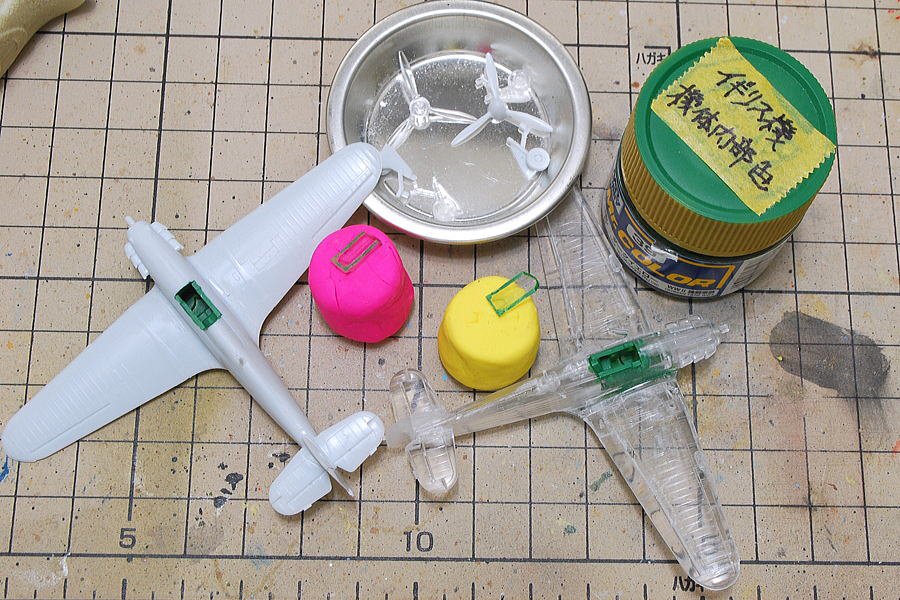 Depending on the manufacturer, the kneaded eraser makes the clear parts whiten if you leave it stuck. I polished the canopy with a compound in a hurry later.
Depending on the manufacturer, the kneaded eraser makes the clear parts whiten if you leave it stuck. I polished the canopy with a compound in a hurry later.
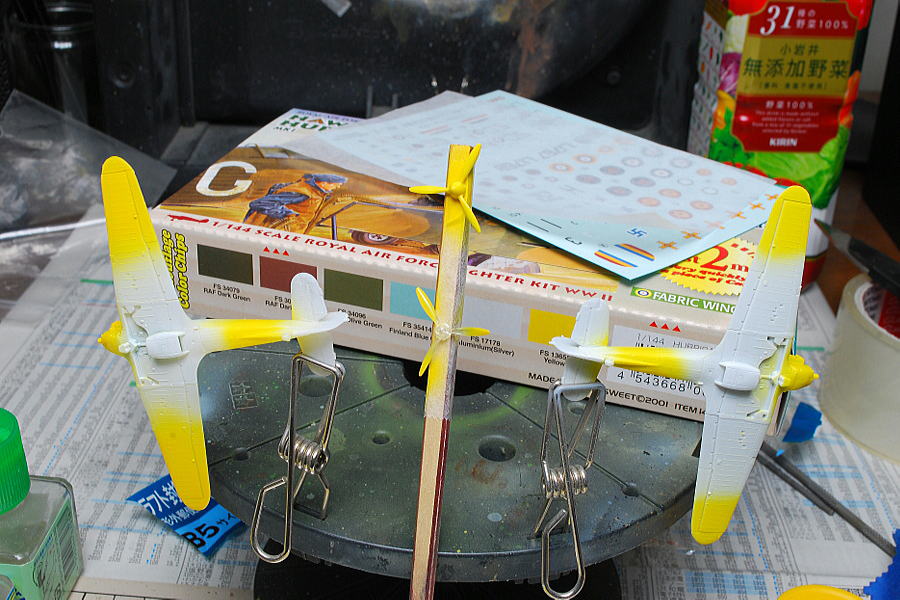 The hurricanes of this time are the Finnish Air Force and Romanian Air Force. There were a lot of parts of yellow paint, so first, I blew the white thinly. Especially the clear body is hard to paint as it is.
The hurricanes of this time are the Finnish Air Force and Romanian Air Force. There were a lot of parts of yellow paint, so first, I blew the white thinly. Especially the clear body is hard to paint as it is.
I usually have handled only a dark color in the AFV building. The soft colors of concealment power, such as yellow, and the airbrush blowing condition setting is challenging. Using too much-blowing paint on a 1/144 small scale is not good when it’s thin; the color doesn’t paint bright.
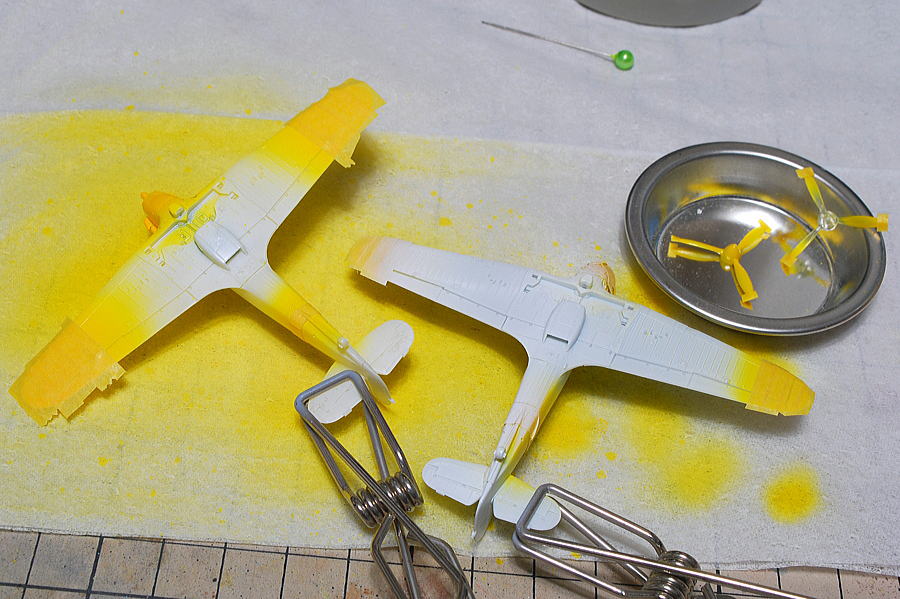 Masking is not my favorite work very much. I painted it yellow. The masking seems to become toilsome from now on.
Masking is not my favorite work very much. I painted it yellow. The masking seems to become toilsome from now on.
(03-December-2015)
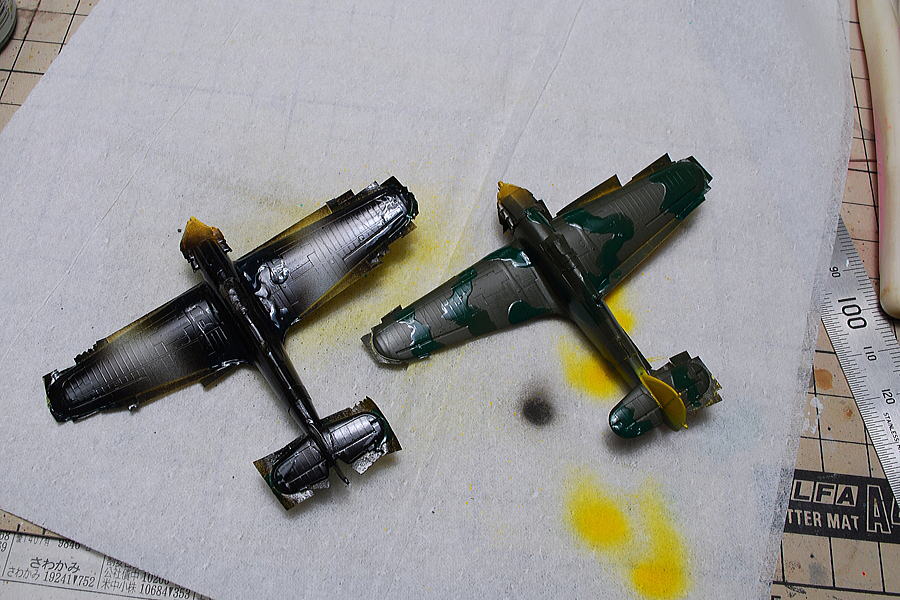 Both planes are entirely different in the color of the camouflage, so even if it’s made together, the working process doesn’t decrease. A masking sol has just covered the camouflage pattern.
Both planes are entirely different in the color of the camouflage, so even if it’s made together, the working process doesn’t decrease. A masking sol has just covered the camouflage pattern.
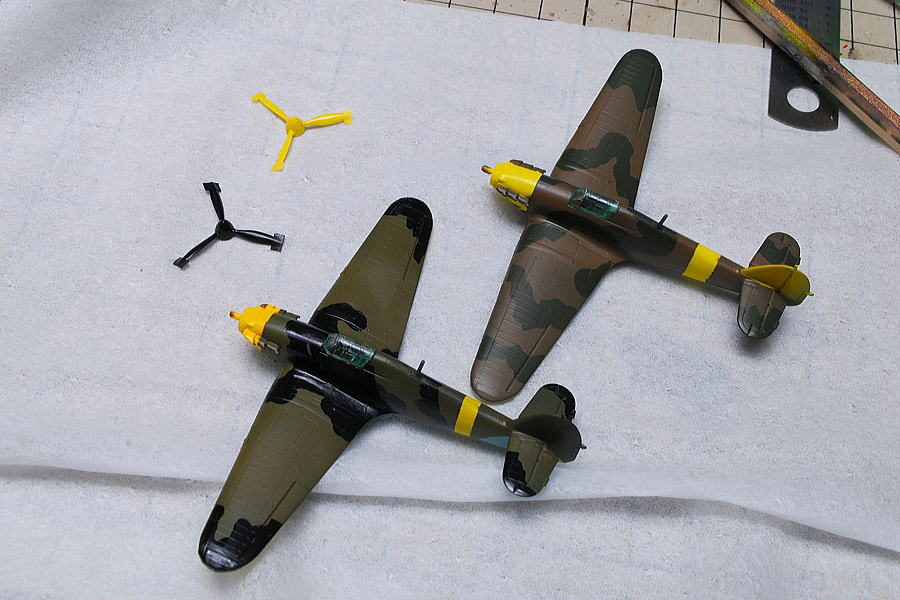 A yellow band of the stick-out parts will be covered and touch-up later. I progressed to paint little by little.
A yellow band of the stick-out parts will be covered and touch-up later. I progressed to paint little by little.
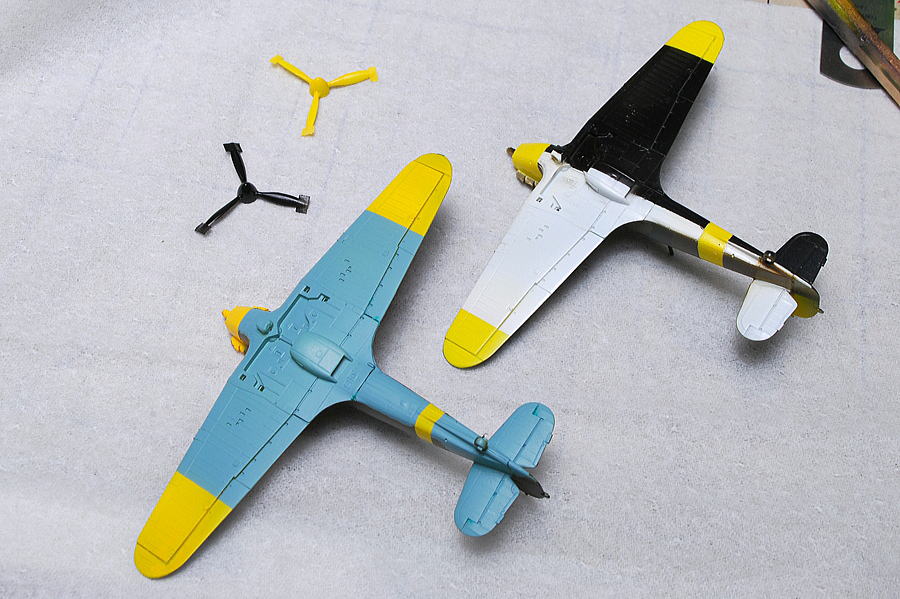 Back it is also unusual paint. The yellow width of the two planes’ main wings is different, and the yellow of the body is also different in width.
Back it is also unusual paint. The yellow width of the two planes’ main wings is different, and the yellow of the body is also different in width.
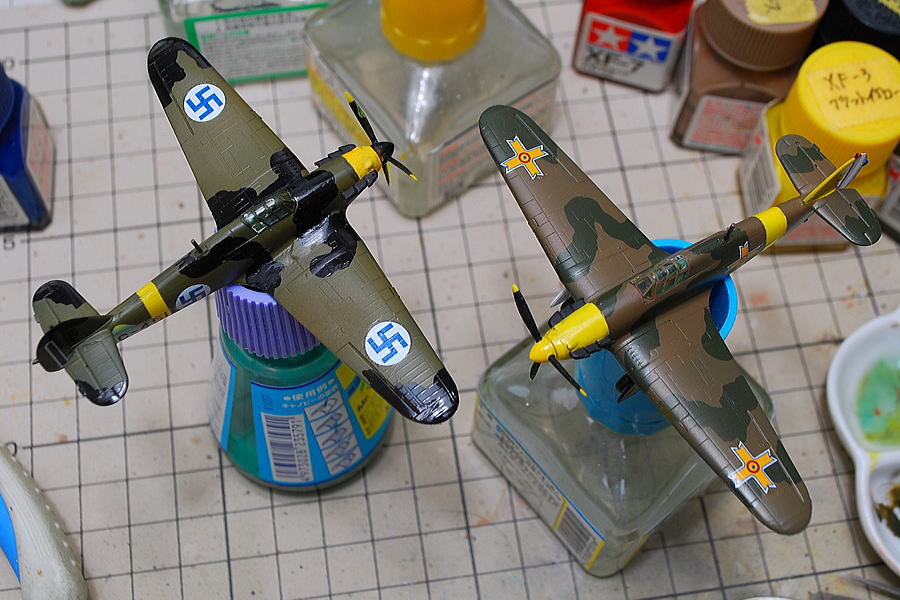 It became olive drab when I mixed the olive green for the Finnish air force. I think it should be more greenish is suitable for the Finland Air Force Hurricane.
It became olive drab when I mixed the olive green for the Finnish air force. I think it should be more greenish is suitable for the Finland Air Force Hurricane.
(06-December-2015)
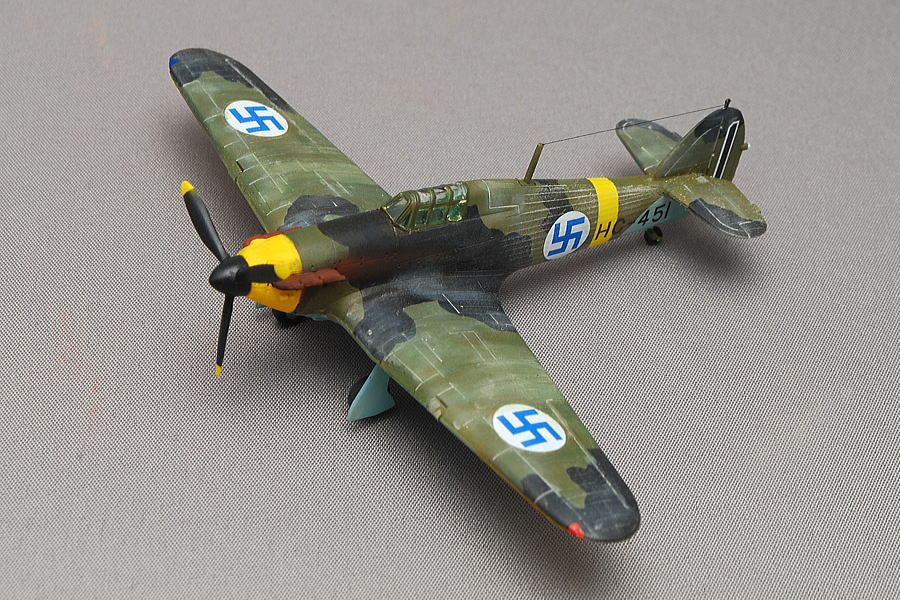 According to the SWEET leaflet, Finnish Air Force ordered 12 hurricanes and received ten planes in March 1940. The remaining two planes were damaged during their transportation. The Hurricane wasn’t in time for the Winter War (Talvisota) and wasn’t used.
According to the SWEET leaflet, Finnish Air Force ordered 12 hurricanes and received ten planes in March 1940. The remaining two planes were damaged during their transportation. The Hurricane wasn’t in time for the Winter War (Talvisota) and wasn’t used.
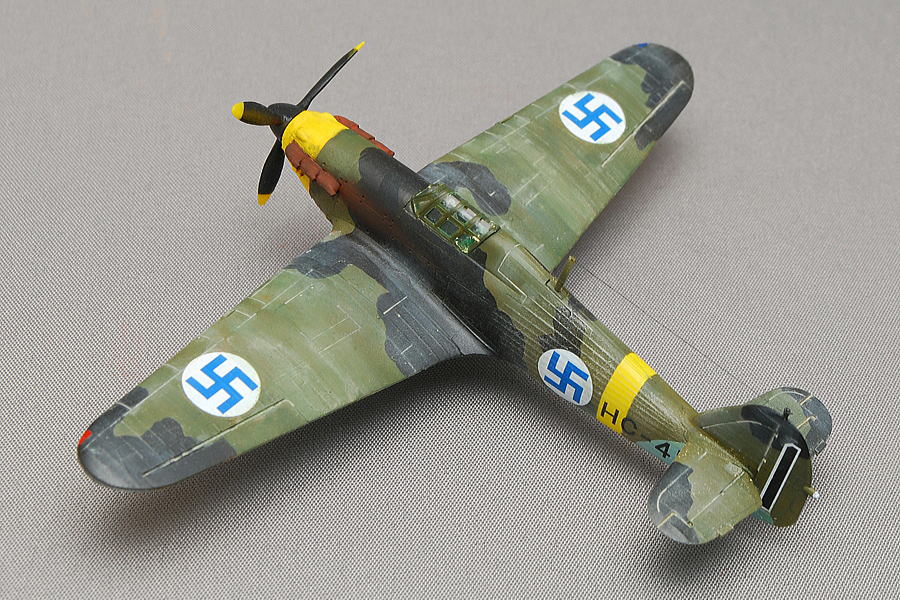 The Hurricane was thrown into the battle after July 1941 as the Axis side in Operation Barbarossa.
The Hurricane was thrown into the battle after July 1941 as the Axis side in Operation Barbarossa.
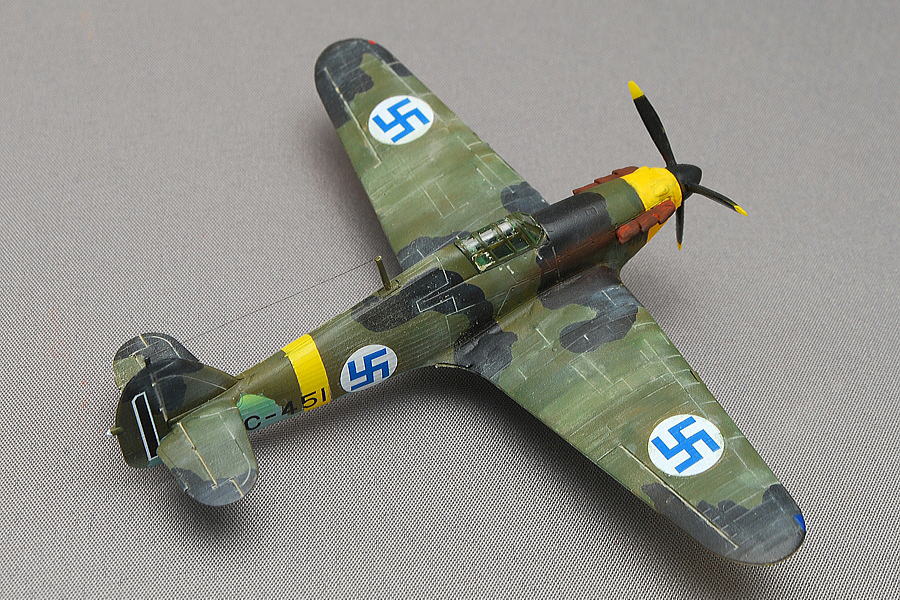 Once I filled a gap between the main wing and the body on the clear parts with the putty, it wasn’t easy to see the surface condition, and the finish-up was rough on the right side. Regrettably, I worked carefully with painting gray for checking. As a result, I felt the gap was not standing out in the camouflage painting.
Once I filled a gap between the main wing and the body on the clear parts with the putty, it wasn’t easy to see the surface condition, and the finish-up was rough on the right side. Regrettably, I worked carefully with painting gray for checking. As a result, I felt the gap was not standing out in the camouflage painting.
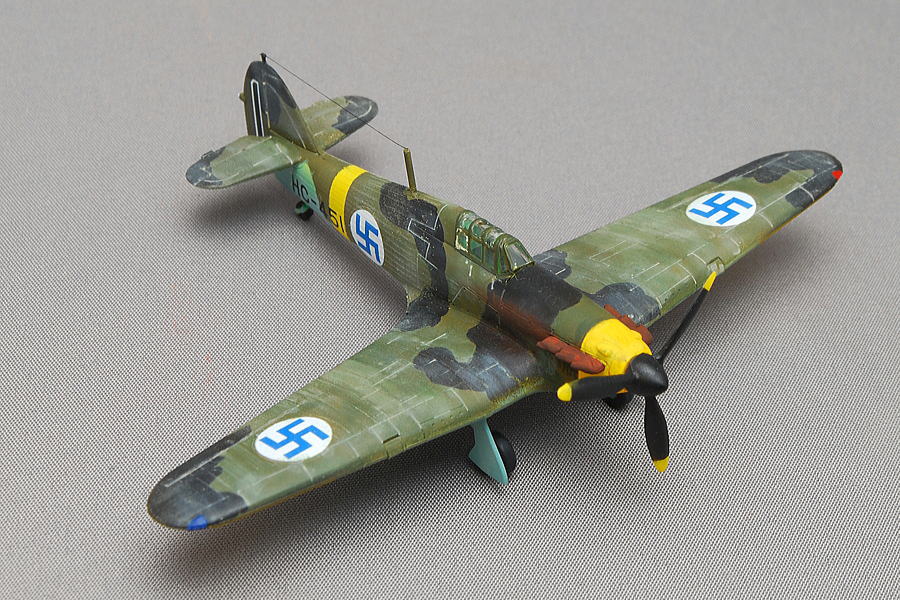 I felt it was more complex than the Zero fighter I made last time. Especially one aircraft of all-clear parts were tough for me.
I felt it was more complex than the Zero fighter I made last time. Especially one aircraft of all-clear parts were tough for me.
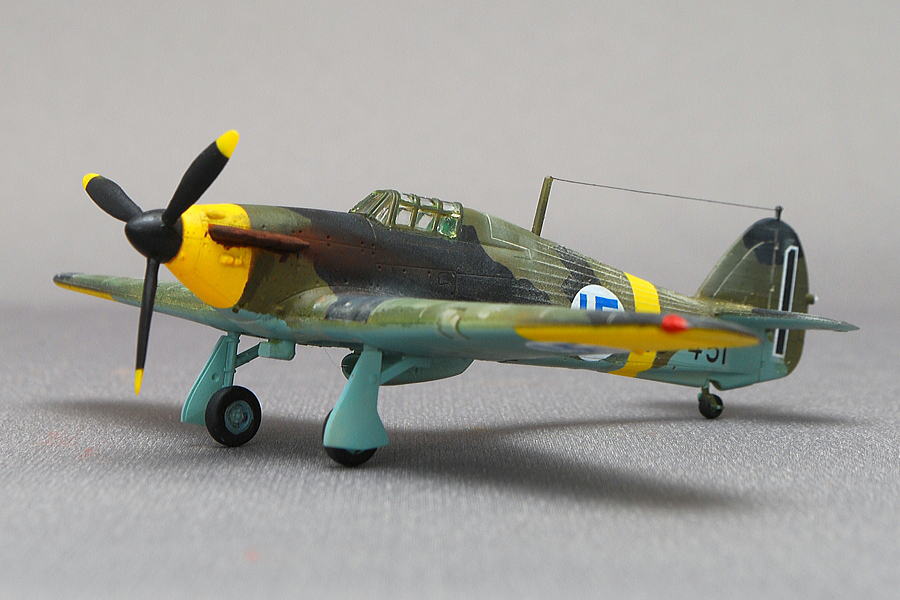 The green part looked olive drab in the making process and did not look like a Finnish air force plane. It looks like a Finnish plane by adjusting a color like washing.
The green part looked olive drab in the making process and did not look like a Finnish air force plane. It looks like a Finnish plane by adjusting a color like washing.
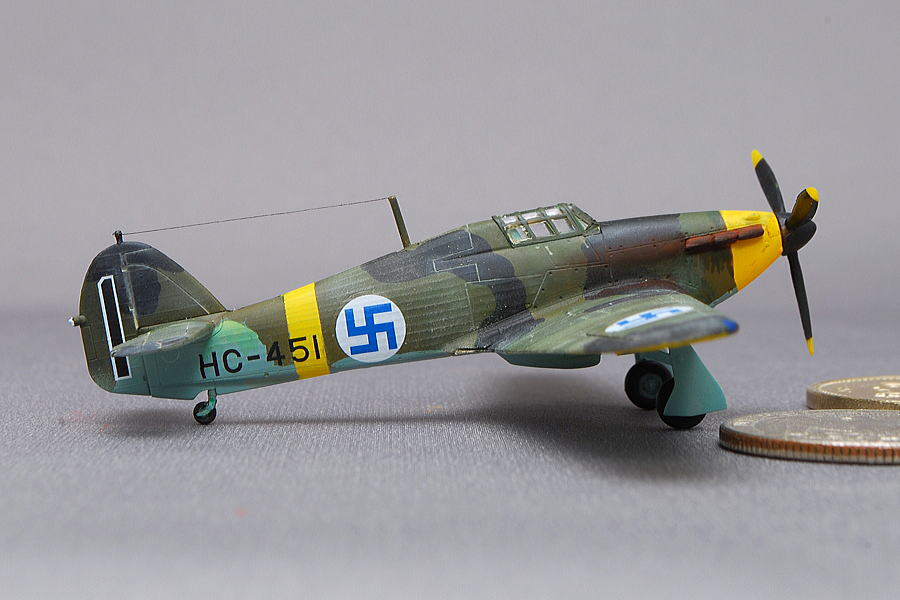 I tried a strong dry-brushing for some parts to give the texture of cloth upholstered aircraft. It looks like an aging body after the recovery of the green color. Still, I think it is better than the color taste before the adjustment.
I tried a strong dry-brushing for some parts to give the texture of cloth upholstered aircraft. It looks like an aging body after the recovery of the green color. Still, I think it is better than the color taste before the adjustment.
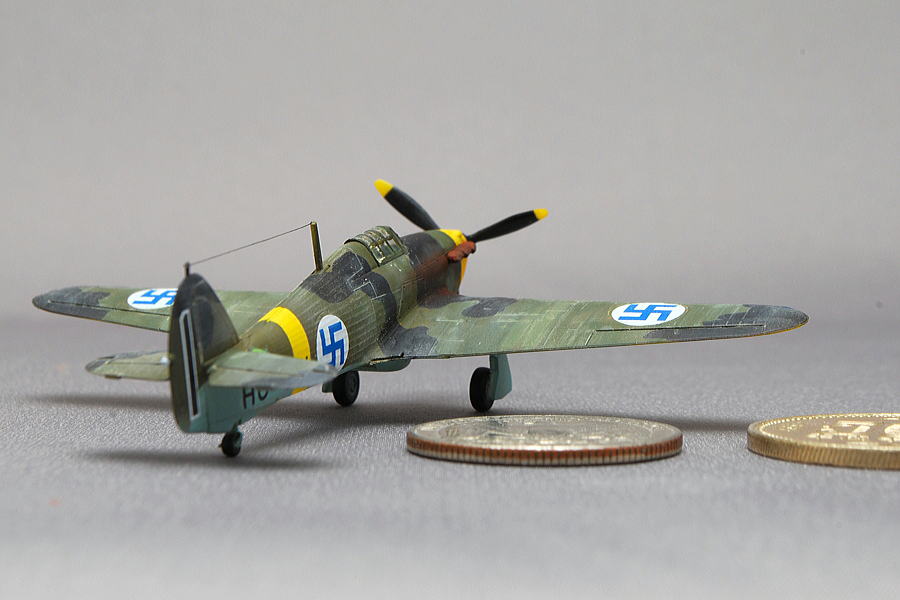 The light blue of the Harkenkreuz mark of the Finnish Air Force is characteristic.
The light blue of the Harkenkreuz mark of the Finnish Air Force is characteristic.
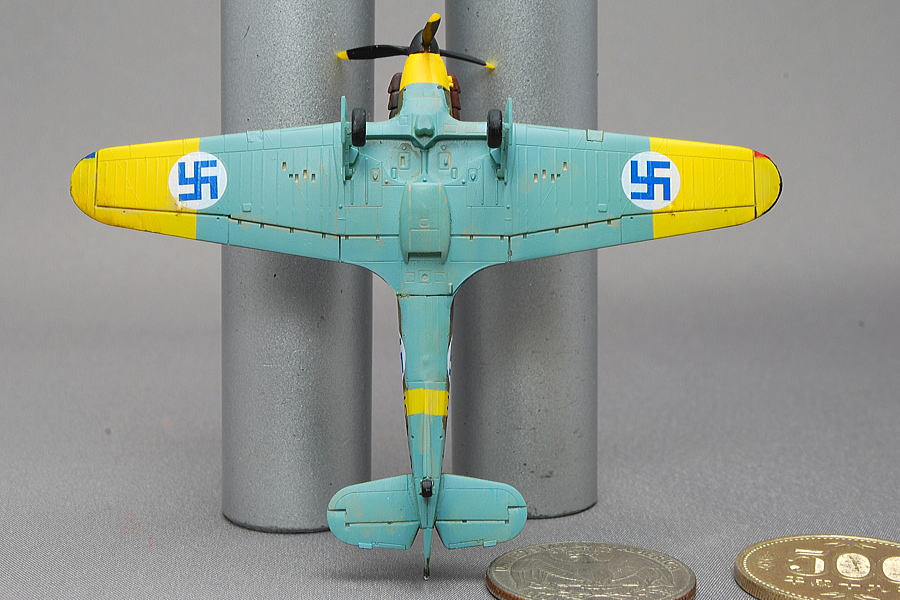 The fuselage’s lower parts are light blue and yellow.
The fuselage’s lower parts are light blue and yellow.
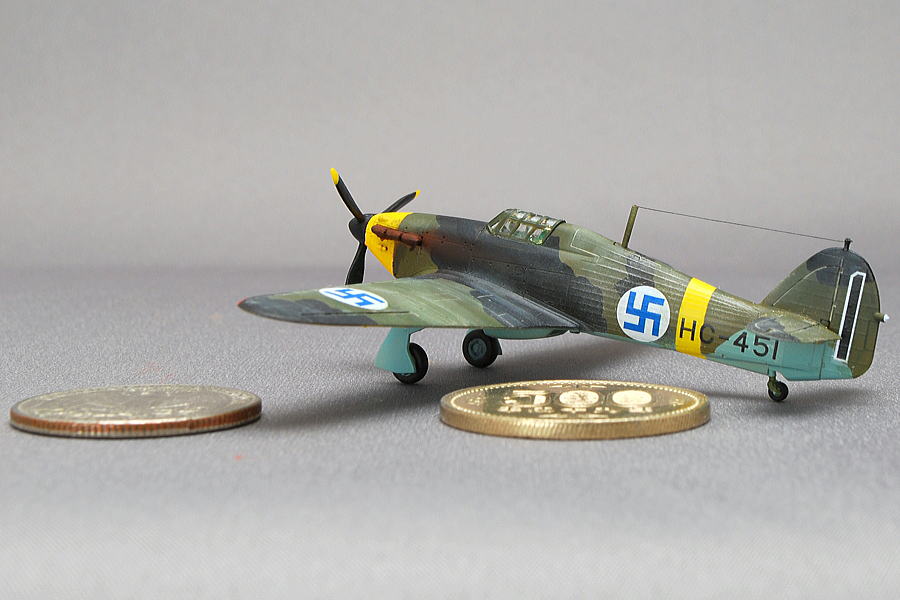 I did the weathering around the exhaust pipe. The sense of use for a 5cm small model is nice looking.
I did the weathering around the exhaust pipe. The sense of use for a 5cm small model is nice looking.
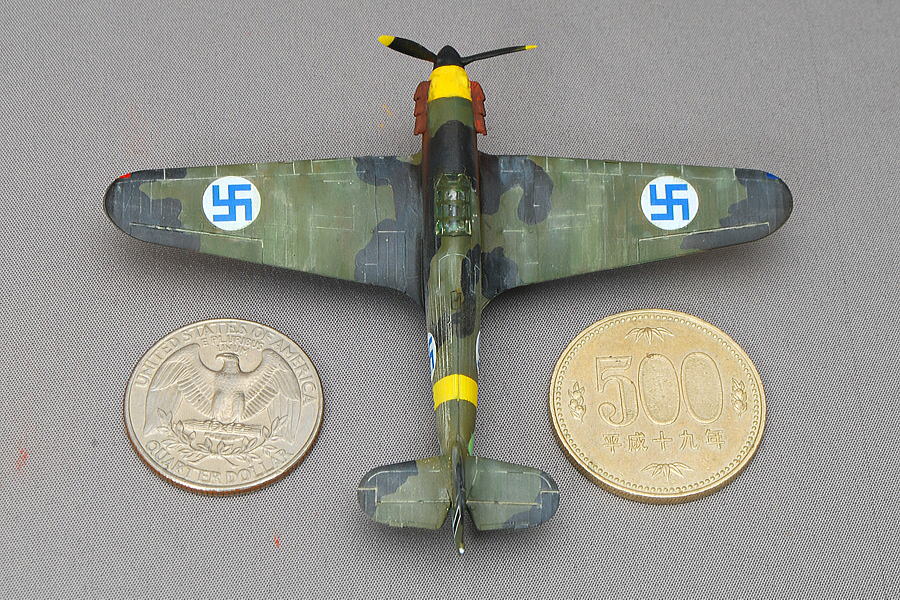 I thought there might not be a shading of the camouflage because of the small scale. If there is a chance next time, I’ll compare shaded and sharp camouflage.
I thought there might not be a shading of the camouflage because of the small scale. If there is a chance next time, I’ll compare shaded and sharp camouflage.
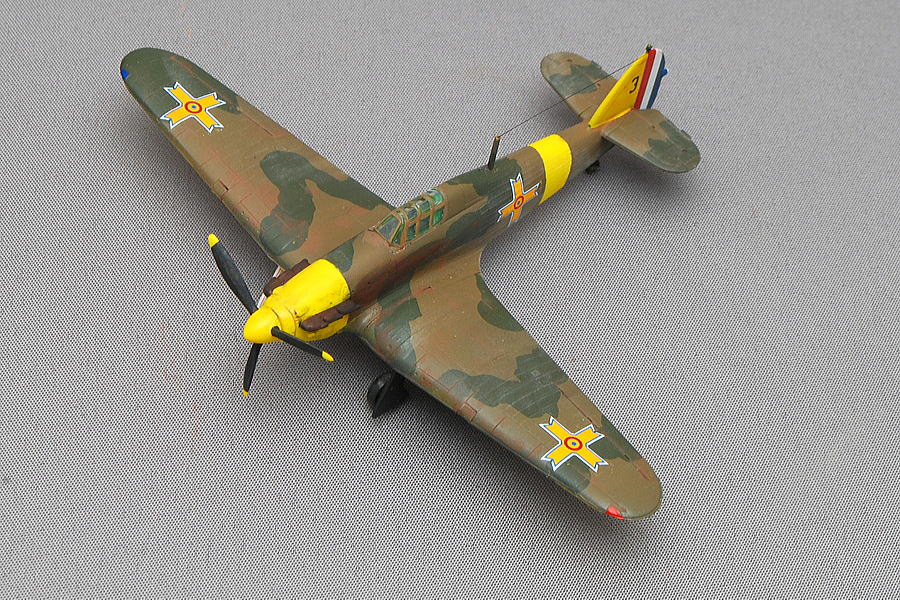 This is also SWEET commentary. Romanian Air Force received 12 aircraft from the Hurricane in March 1940 and held it with the addition of three captured from Yugoslavia; the total was 15 aircraft. I was assigned to the defense mission of the Black Sea coast at the time of Operation Barbarossa’s start.
This is also SWEET commentary. Romanian Air Force received 12 aircraft from the Hurricane in March 1940 and held it with the addition of three captured from Yugoslavia; the total was 15 aircraft. I was assigned to the defense mission of the Black Sea coast at the time of Operation Barbarossa’s start.
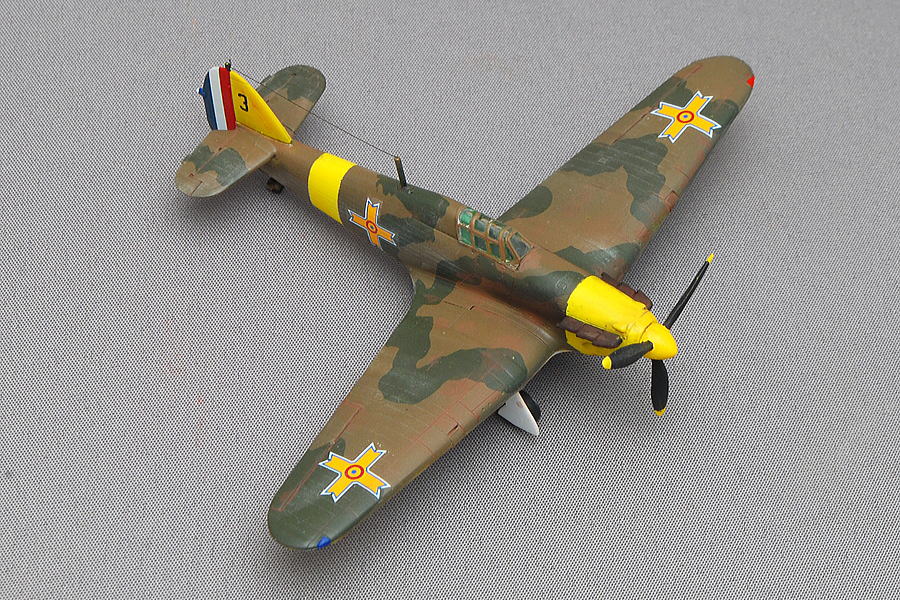 Lieutenant Horia Agarici of this model shot down three Soviet Union bombers after Operation Barbarossa opened. Lieutenant Agarici was the Romanian ace pilot of the Swiss-born. He became a fighter pilot through a bomber pilot and survived WWII. He lived until 1982, after the war.
Lieutenant Horia Agarici of this model shot down three Soviet Union bombers after Operation Barbarossa opened. Lieutenant Agarici was the Romanian ace pilot of the Swiss-born. He became a fighter pilot through a bomber pilot and survived WWII. He lived until 1982, after the war.
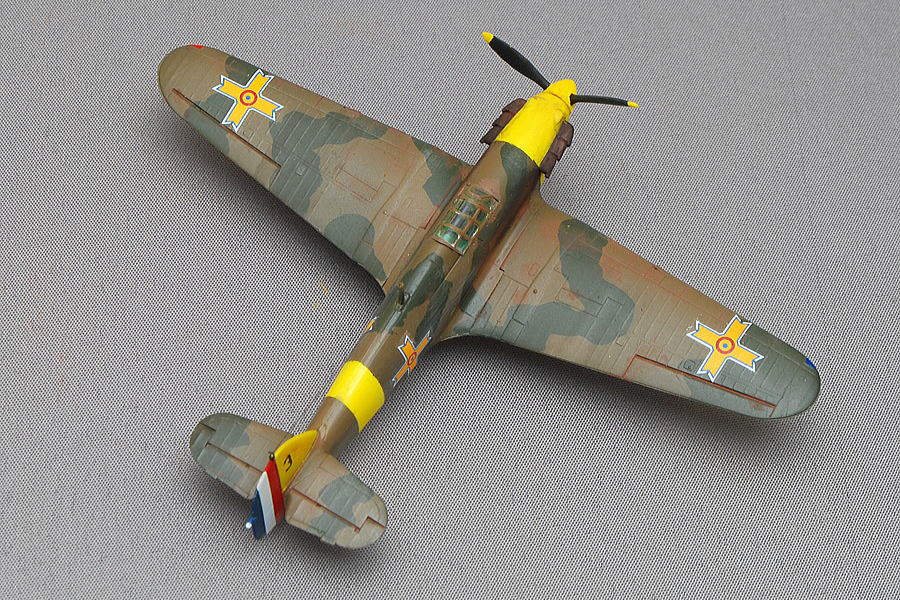 I didn’t think the blur of a color turning point of the camouflage especially. It is just right when I display a 1/144 scale on my shelf.
I didn’t think the blur of a color turning point of the camouflage especially. It is just right when I display a 1/144 scale on my shelf.
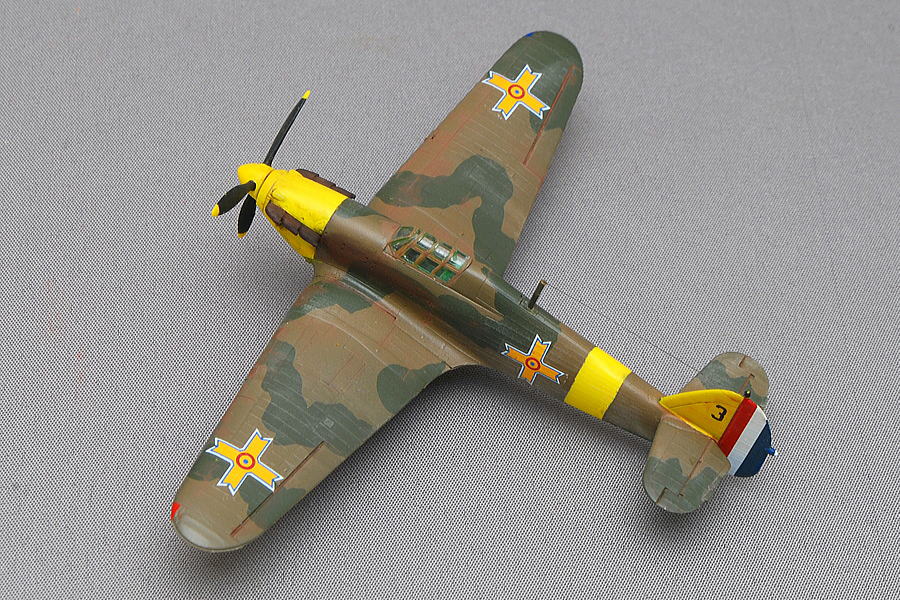 I washed in a slightly brown and a dry-brushing on a cloth part thinly.
I washed in a slightly brown and a dry-brushing on a cloth part thinly.
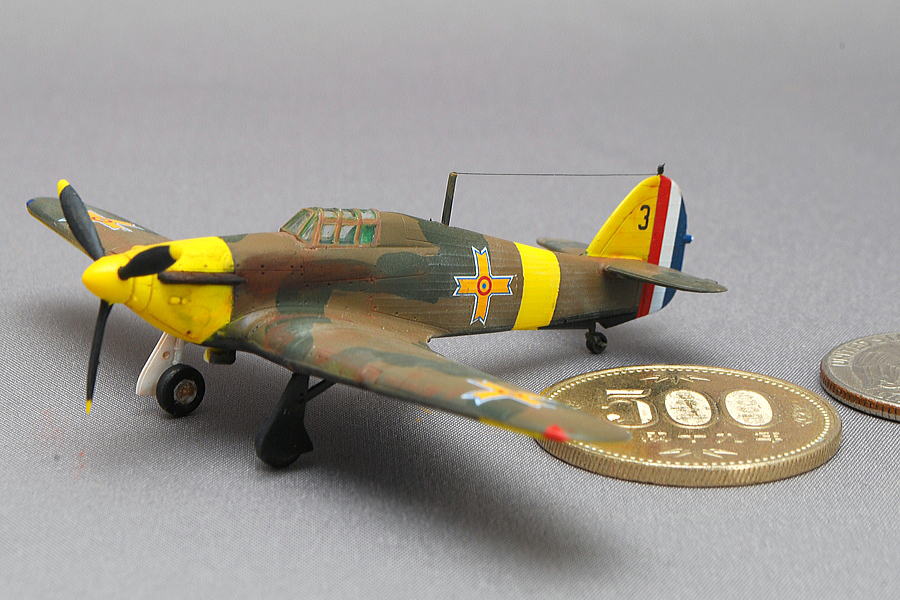 As for the nationality mark of the Romanian Air Force, a round mark is in the center of the cross during World War II, whether it is the influence of Germany. It is a circular mark now.
As for the nationality mark of the Romanian Air Force, a round mark is in the center of the cross during World War II, whether it is the influence of Germany. It is a circular mark now.
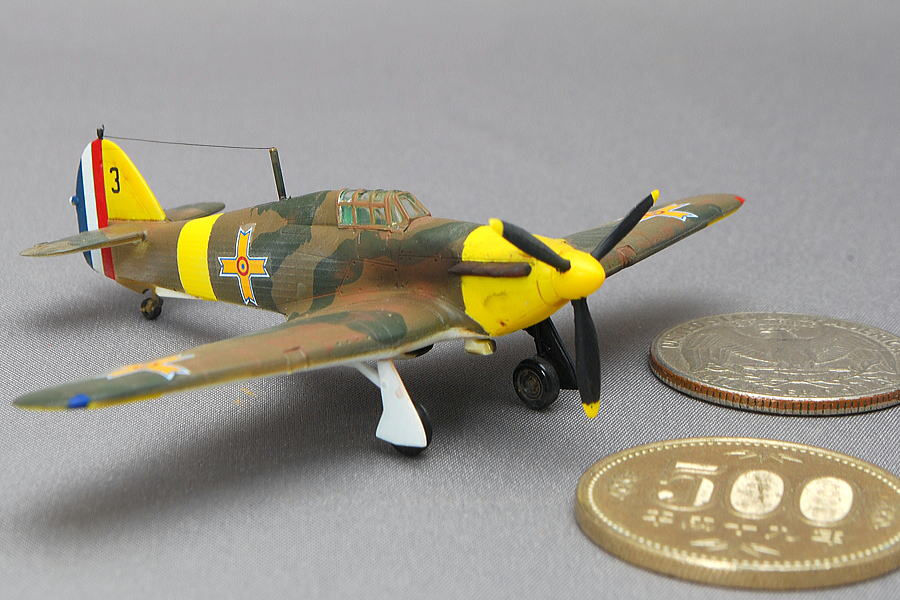 The antenna wire was tensioned with detailed work. It is a super-thin metal line.
The antenna wire was tensioned with detailed work. It is a super-thin metal line.
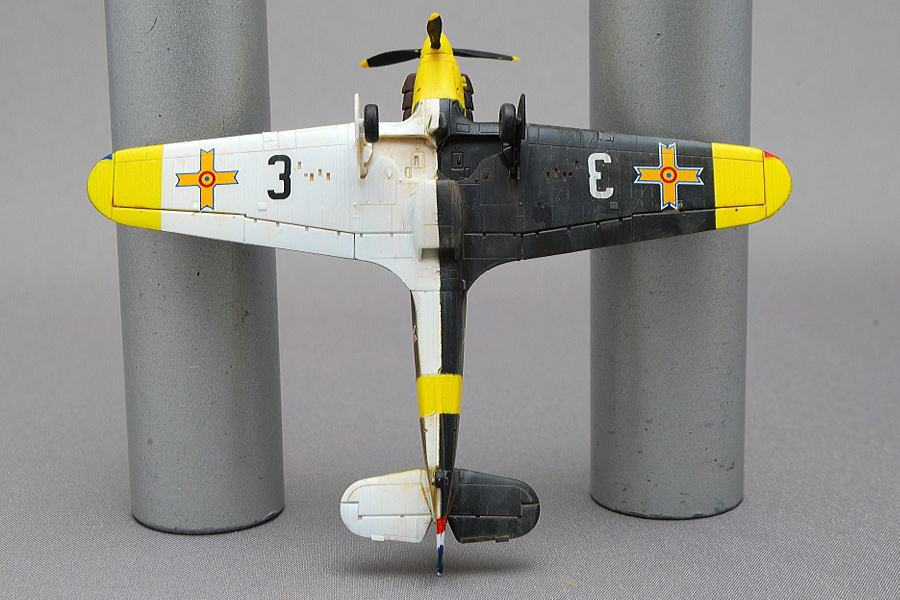 The body underside is an extraordinary painting with white and black. There is a yellow accent in the all-around and feels excellent.
The body underside is an extraordinary painting with white and black. There is a yellow accent in the all-around and feels excellent.
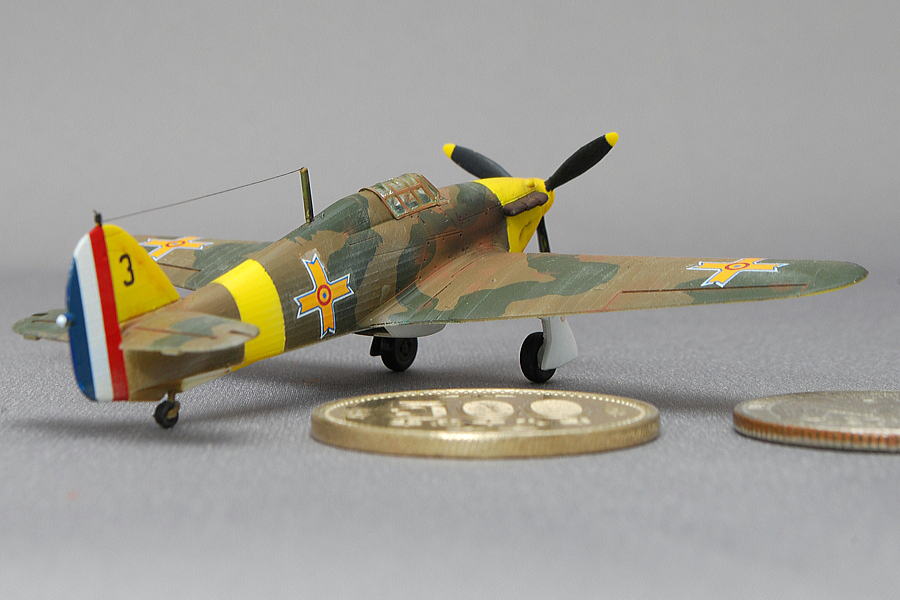 “Easy to Build Just 2 Minutes!!” on the box. It is just a catchphrase, but considering such camouflage paint, two minutes is impossible. Anyway, they’re precise parts, so it’s best that we can build them quickly!
“Easy to Build Just 2 Minutes!!” on the box. It is just a catchphrase, but considering such camouflage paint, two minutes is impossible. Anyway, they’re precise parts, so it’s best that we can build them quickly!
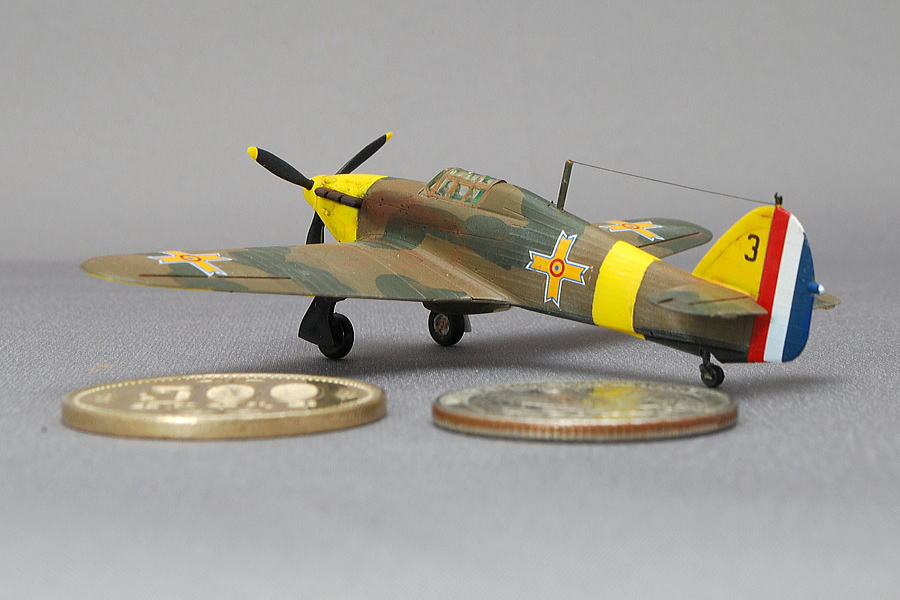 There are still a lot of improvement points; now it’s the first 1/144 camouflage painting. That I noticed one thing, care must be taken in the assembly since the all-clear parts kit is difficult to recognize the shape. I want to make use of this experience in the next building.
There are still a lot of improvement points; now it’s the first 1/144 camouflage painting. That I noticed one thing, care must be taken in the assembly since the all-clear parts kit is difficult to recognize the shape. I want to make use of this experience in the next building.
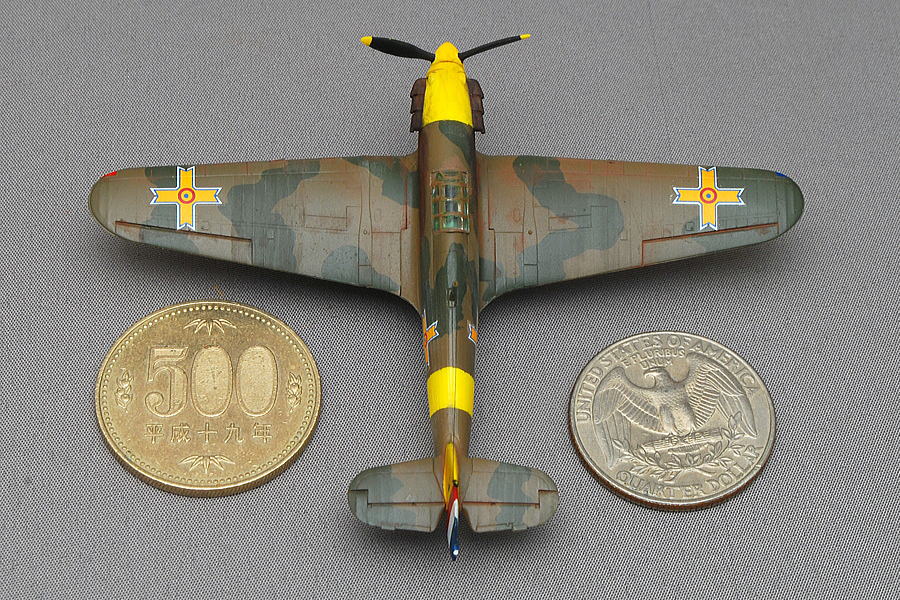 The Hurricane is brilliant. When I made a tiny Zero 1/144, I said a similar thing but have not yet made it. It’s necessary to make a big-scale Hurricane next time. There is the kit at hand and waiting…
The Hurricane is brilliant. When I made a tiny Zero 1/144, I said a similar thing but have not yet made it. It’s necessary to make a big-scale Hurricane next time. There is the kit at hand and waiting…
(08-December-2015)


